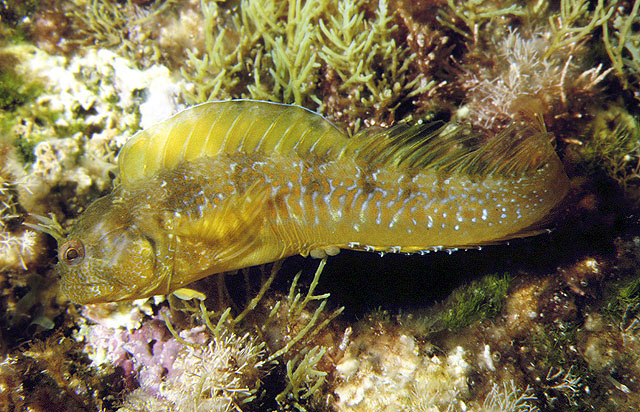| Blenniidae (Combtooth blennies), subfamily: Salariinae |
| 8 cm TL (male/unsexed) |
|
demersal; marine; depth range 0 - 2 m |
| Eastern Atlantic and Mediterranean Sea: Madeira, the Canary Islands and Victoria, Cameroon, off Iberian Peninsula to all parts of the Mediterranean including Morocco, the Sea of Marmara, and Black Sea (Ref. 5981). |
|
|
| Adults inhabit rocky shores of coastal waters (Ref. 5298). Omnivorous (Ref. 94105). They feed on bottom invertebrates, especially gammarids; also feeds on algae (Ref. 5981). Oviparous. Eggs are demersal and adhesive (Ref. 205), and are attached to the substrate via a filamentous, adhesive pad or pedestal (Ref. 94114). Larvae are planktonic, often found in shallow, coastal waters (Ref. 94114). |
|
Least Concern (LC); Date assessed: 14 November 2007 Ref. (130435)
|
| harmless |
Source and more info: www.fishbase.org. For personal, classroom, and other internal use only. Not for publication.
